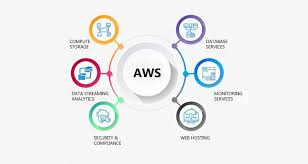Blockchain technology has revolutionized the digital world by introducing decentralization, transparency, and security into various industries. However, at the heart of this transformation lies the critical process of blockchain protocol development. In this blog, we’ll delve into the significance of blockchain protocol development services, the essential role they play in decentralization, and why businesses should consider leveraging these services to stay ahead in the rapidly evolving technological landscape.
Understanding Blockchain Protocol Development
Before we dive deeper, let’s clarify what blockchain protocol development entails. Blockchain protocols are the underlying rules and standards that govern the operation of blockchain networks. They determine how data is recorded, validated, and shared across the network, ensuring that all participants follow the same set of rules. This is crucial for maintaining the integrity and security of the blockchain.
Blockchain protocol development services involve creating, customizing, and optimizing these protocols to meet the specific needs of a project or organization. Whether it’s building a new blockchain from scratch or modifying an existing one, these services ensure that the blockchain operates efficiently and securely.
Why Blockchain Protocol Development Services Matter
- Ensuring Decentralization: Decentralization is one of the core principles of blockchain technology. By distributing power and control across a network of nodes rather than centralizing it in a single entity, blockchain protocols enhance security, reduce the risk of fraud, and promote transparency. Blockchain protocol development services play a pivotal role in designing protocols that ensure true decentralization, preventing any single point of failure.
- Custom Solutions for Unique Needs: Every business has unique requirements, and a one-size-fits-all approach doesn’t work when it comes to blockchain. Blockchain protocol development services allow companies to tailor the blockchain to their specific needs, whether it’s optimizing for speed, scalability, or security. This customization is essential for businesses looking to implement blockchain technology effectively.
- Compliance and Regulatory Adherence: As blockchain technology continues to evolve, so does the regulatory landscape. Blockchain protocol development services help businesses navigate this complex environment by ensuring that their protocols are compliant with relevant regulations. This is particularly important in industries like finance and healthcare, where adherence to regulatory standards is non-negotiable.
- Enhancing Security: Security is paramount in the blockchain world. Blockchain protocol development services focus on creating protocols that are resilient to attacks and vulnerabilities. By implementing advanced cryptographic techniques and consensus algorithms, these services ensure that the blockchain remains secure against threats, both external and internal.
- Future-Proofing the Blockchain: The blockchain space is dynamic, with new technologies and trends emerging rapidly. Blockchain protocol development company help businesses stay ahead by incorporating the latest advancements into their protocols. This future-proofing ensures that the blockchain remains relevant and effective as technology evolves.
The Role of Blockchain Protocol Development in Decentralization
Decentralization is often hailed as the most significant advantage of blockchain technology. But what does decentralization mean in practice, and how do blockchain protocols facilitate it?
Distributed Consensus Mechanisms
At the heart of any decentralized blockchain network is its consensus mechanism—the method by which all nodes in the network agree on the state of the blockchain. Consensus mechanisms like Proof of Work (PoW), Proof of Stake (PoS), and Practical Byzantine Fault Tolerance (PBFT) are critical components of blockchain protocols. Blockchain protocol development services are responsible for designing and implementing these mechanisms, ensuring that they are both secure and efficient.
For example, Bitcoin’s PoW consensus mechanism has proven to be highly secure but is also energy-intensive. On the other hand, newer protocols like Ethereum 2.0’s PoS aim to achieve similar security with a fraction of the energy consumption. Blockchain protocol development services help businesses choose and implement the right consensus mechanism for their specific use case, balancing security, efficiency, and environmental impact.
Decentralized Governance Models
Decentralization extends beyond just technology—it also encompasses governance. Decentralized governance models ensure that no single entity has control over the blockchain, distributing decision-making power among participants. Blockchain protocol development services design these governance models, enabling features like voting systems, decentralized autonomous organizations (DAOs), and community-driven development.
These governance models are crucial for maintaining trust in the blockchain, as they prevent any single entity from exerting undue influence. For instance, the rise of DAOs has allowed communities to collectively manage and fund projects, further enhancing decentralization.
Interoperability Between Blockchains
In a decentralized world, no blockchain operates in isolation. Interoperability—the ability for different blockchains to communicate and interact with each other—is essential for the growth of the blockchain ecosystem. Blockchain protocol development services focus on creating protocols that support interoperability, enabling seamless transfers of assets and data across different blockchain networks.
Protocols like Polkadot and Cosmos are prime examples of blockchain projects that prioritize interoperability. By connecting different blockchains, they create a more unified and decentralized ecosystem, where assets can move freely across chains without the need for intermediaries.
Scalability Solutions
Scalability is a major challenge for blockchain networks, particularly as they grow in size and usage. Traditional blockchain networks like Bitcoin and Ethereum have faced scalability issues, leading to slower transaction times and higher fees. Blockchain protocol development services address these challenges by designing and implementing scalability solutions that allow the network to handle a larger volume of transactions without compromising decentralization.
Layer 2 solutions, sharding, and sidechains are some of the approaches used to enhance scalability. For instance, Ethereum’s Layer 2 solutions, like Optimistic Rollups, aim to offload some of the transaction processing from the main Ethereum chain, thereby increasing throughput and reducing costs.
Latest Trends and Insights in Blockchain Protocol Development
The blockchain space is constantly evolving, and staying updated with the latest trends and insights is crucial for businesses looking to leverage blockchain protocol development services effectively.
The Rise of Layer 2 Solutions
Layer 2 solutions have gained significant traction in recent years as a way to enhance the scalability and efficiency of blockchain networks. These solutions operate on top of the main blockchain, processing transactions off-chain while relying on the main chain for security and finality. This approach not only increases transaction throughput but also reduces fees, making it more accessible for users.
The Growth of Interoperable Blockchains
As the blockchain ecosystem expands, the need for interoperability has become more pressing. Projects like Polkadot, Cosmos, and Avalanche are leading the charge in creating interoperable blockchain networks that allow seamless communication and asset transfers between different blockchains. This trend is expected to continue growing, with more businesses adopting interoperable solutions to enhance their blockchain networks.
The Shift Towards Sustainable Blockchain Protocols
With the increasing focus on environmental sustainability, there has been a shift towards developing blockchain protocols that are energy-efficient and environmentally friendly. Ethereum’s transition from PoW to PoS is a prime example of this trend. As businesses become more conscious of their environmental impact, demand for sustainable blockchain protocol development services is expected to rise.
Enhanced Privacy Features
Privacy is becoming a key concern in the blockchain space, particularly with the growing adoption of decentralized finance (DeFi) and non-fungible tokens (NFTs). Blockchain protocol development services are now focusing on incorporating advanced privacy features, such as zero-knowledge proofs (ZKPs) and confidential transactions, to ensure that sensitive data remains secure and private.
Why Your Business Needs Blockchain Protocol Development Services
In today’s fast-paced digital landscape, businesses need to stay ahead of the curve to remain competitive. Blockchain protocol development services offer a unique opportunity to leverage the power of decentralization, enhance security, and future-proof your operations. Whether you’re a startup looking to disrupt an industry or an established enterprise seeking to innovate, investing in blockchain protocol development is a strategic move that can yield significant long-term benefits.
Call to Action:
Ready to harness the power of decentralization? Partner with industry-leading blockchain protocol development services to unlock new possibilities for your business. Whether you’re building a new blockchain from scratch or optimizing an existing one, our expert team will guide you every step of the way. Contact us today to explore how we can help you stay ahead in the rapidly evolving world of blockchain technology.








1 Comment